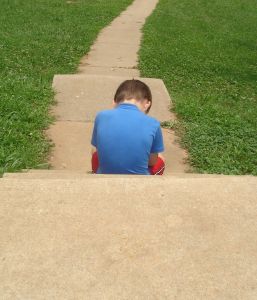Do children forget quickly and grieve for only a short period?
 Although children have shorter attention spans and seem to forget or ignore tragedy and pain, they can actually grieve longer than adults do. The steps of the grieving process are taken in short spurts because of their attention spans, but they too, have to go through the same steps of grief as an adult. From accepting and comprehending death to recovering and moving on.
Although children have shorter attention spans and seem to forget or ignore tragedy and pain, they can actually grieve longer than adults do. The steps of the grieving process are taken in short spurts because of their attention spans, but they too, have to go through the same steps of grief as an adult. From accepting and comprehending death to recovering and moving on.
Should we include our children at the funeral?
When it comes to children, honesty is key. Children have large imaginations which can make things worse if they are not told what is going on. Children should be encouraged but never forced to take part as a family during the funeral or wake. This is a time for families to come together, share, comfort and mourn together. Your child shouldn’t be left out.
Our children seem distraught and unusually saddened since the loss of a family member, is this normal?
Children, much like adults can lose control of their emotions. Acute anger and guilt can build up as they might feel abandoned or deserted. They might feel as if the death was their fault. Professional help might be needed if there are prolonged periods of abnormal behavior. Accepting loss takes time, and the process of grief can take years to overcome. But, watching for signs of depression in children is very important, since it is harder for them to express their emotions.
Danger signs in grieving children:
- Depression: Your child shows a loss of interest in daily activities, bonds between siblings shatter or their school grades drop dramatically.
- Regression: Your child is acting younger and declining in behavior for an extended amount of time.
- Isolation: Your child might be withdrawing from social activities and school beyond the first few weeks of grief.
- Fear: They have problems sleeping, eating or develop a great fear of being alone.
- Wishing for death: Your child might repeatedly wish to join the dead person or have a preoccupation with the deceased.
- Extreme Anger: Their behavior becomes belligerent and uncharacteristic.
- Violence: They show acts of violence against piers, adults or themselves.
Any and all of these symptoms are common and expected when children have to face the loss of a loved one – however, the severity and the length of time that it takes is what you have to look out for. Watch for prolonged periods of time that you child is not acting like themselves.
Offer support and encourage communication using verbal expressions of emotions. Talk with child and ask questions about their feelings. Children have a hard time communicating especially when it has to do with death. The unknown is scary. You want to answer their questions in the most age appropriate way. Being honest, calm and real. If you cry, it’s ok. Teaching children that tears and sorrow are normal helps them to feel comfortable expressing their grief.
Ask for help
When in doubt, ask for help. Contact a family counselor, your church, or school counselor for help. It is hard to help someone deal with grief, if you too are going through the grief process. Asking for help isn’t a sign of weakness, it is encouraged and respected. Be a good role model for your child and accept that grief is a process that takes time and effort to get through.
Tags: Coping, Grieving, Grieving Children